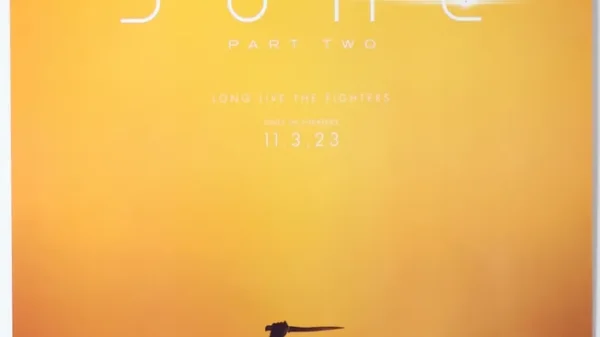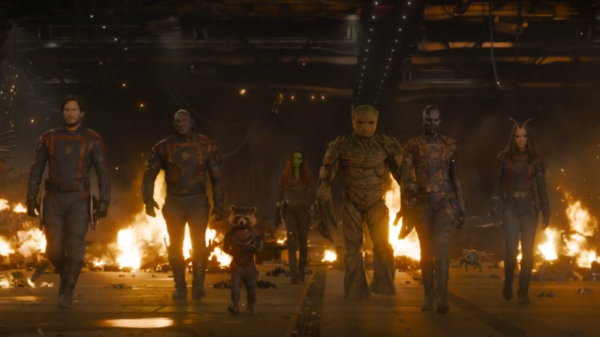Roar writer Leo Benham reviews Jordan Peele’s “Nope” and asks whether it lives up to his previous work.
The reputation that Jordan Peele has moulded over the last five years is truly unique to the modern film world, his prior career in television comedy seeming somewhat alien to his work today. Both “Get Out” (2017) and “Us” (2019) feel like films that have solidified themselves into the new wave of horror that has been popularised alongside the work of Ari Aster and Robert Eggers in the last decade. As a genre so frequently employed by Hollywood because of its financial box office guarantees, horror needed something refreshing that the likes of Peele have provided, with touches of modernity and reflections on race that escalate his work. Consequently, the reception of “Us” and even more so, “Get Out”, have set a high bar for the filmmaker, one that audiences hope will continue to rise in quality and originality for years to come. Whether 2022’s “Nope” does that or not remains a question, as the film has presented quite the catalogue of critique and reception, both with praise and confusion. Spoilers ahead.
“Nope” succeeds in constructing a space that seems bizarrely familiar and homely, yet daunting and unnerving. Like a circus of encapsulated American culture, it is infused with original takes on horror that refresh the library of the genre that we’re so familiar with. Whether it be through Ruth De Jong’s marvellous production design, Hoyte van Hoytema’s crisp and one-of-a-kind IMAX camerawork, or Michael Abels’ unusually theatrical yet Western score, there is something about the world Peele creates that seems ever so slightly dispirited and off in tone.
Of course, as the figure of Jean Jacket is shown in all its glory, this level of disturbance reaches its peak, and a truly original figure of extraterrestrial life is born. Peele is no stranger to utilising the grandiose spectacle of the unnerving, with the Hands Across America stunt during the closing moments of “Us”, or the Sunken Place scenes in “Get Out” coming to mind. It is through these conventions of Peele’s that he can fabricate a reality of alien life visiting earth with such a close-to-home feeling, despite the knowledge and whereabouts of real outer-space life being so secretive and undercover in the modern world.
The acting work from Daniel Kaluuya, Keke Palmer and Steven Yeun rivals some of the most impressive performances in recent horror history such as Lupita Nyong’o’s Red from “Us” and Kaluuya’s performance as Chris in “Get Out” in Peele’s own filmography. Kaluuya continues his Scorsese-De Niro-like partnership with Peele, as their chemistry off-screen is matched by Kaluuya’s ability to absorb the script and character on-screen that perfectly encapsulates Peele’s humour and societal takes.
Where the issue rises with “Nope” is through its identity as both a genre piece and a messenger. Peele compiles tropes of all manner of filmic genres, including the obvious horror and thriller conventions – frequent tonal darkness, gradually paced scoring, gloomy atmospheric choices – as well as incorporating archetypes from sci-fi and Westerns such as concerns with the supernatural, ranch settings and the like. Of course, incorporating multiple genres into one film is not destined for disaster. The inclusion of horror in genre-hybrid films is often a success – “Shaun of the Dead” and “Alien” to name a few – yet “Nope” struggles to align itself to the level of certainty and confidence that is often reached with predecessors in this bracket. What ensues is a slightly messy series of genre episodes that don’t infuse to bring any sort of chemistry as a single piece.
The headline discussion point of “Nope” is its true meaning through its implications and what it invites audiences to take away from it. Since the film’s late July release in the USA, fan theories have stormed the internet questioning the meaning of all sorts of signifiers that Peele poses. What is the meaning of Gordy the Monkey? Is the film a metaphor for animal rights? Hollywood? The food chain? The overwhelming discourse relative to the film’s meaning therefore begs the question: is this a marketing ploy to promote discussion and therefore re-watches, or is it just a way for Peele to truly engage and engross audiences within his horror universe?
What comes across from Peele’s fiesta of metaphors and hidden messages is a bombardment of confusion rather than a true desire to discover what it means under the surface. Upon a rewatch, some of the supposed easter eggs and ‘hidden’ messages were no more identifiable, with the odd detail being picked up that is clearly invited by seeing the film again. While some may enjoy decoding the various ambiguous signifiers of “Nope”, it comes across as an agglomeration of somewhat ambitious, yet mostly meaningless metaphoric implications that summarise the status of “Nope” in a nutshell.
If one were to categorise Peele’s work so far as a trilogy, “Nope” feels like his “Godfather Part III” or “Star Wars: Return of the Jedi” to the trio; a deliciously set-up piece that fails to truly fulfil the sum of its parts by replacing the prior simplicity for something too ambitious, or possibly ahead of its time.















